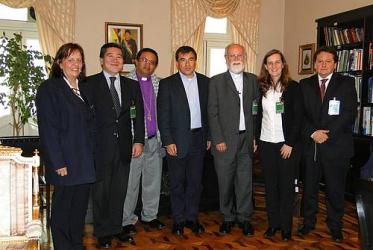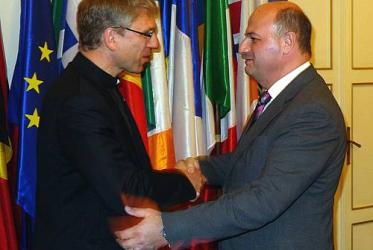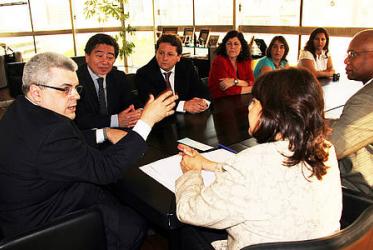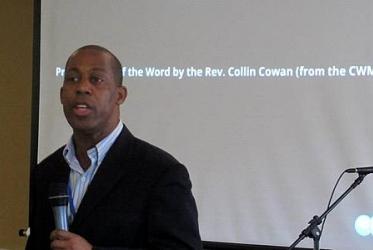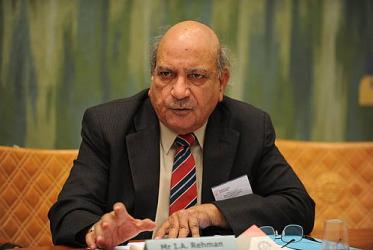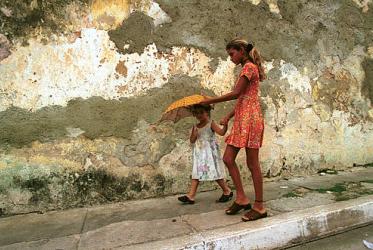Displaying 121 - 140 of 150
31 January 2013
Statement on global economy delivered to Bolivia
15 January 2013
WCC delegation in Doha advocates for climate justice
05 December 2012
Situation in Greece more than an economic crisis
20 November 2012
WCC adopts statements on contemporary public issues
12 September 2012
Women in inter-religious dialogue in Indonesia
31 July 2012
Reducing the threat of HIV remains a challenge
04 July 2012
Churches in Colombia support victims of land dispute
30 April 2012
WCC urges protection of religious minorities in Pakistan
23 December 2011
Building peace in solidarity with the poor
12 September 2011
Towards an eco-theology
30 March 2011

